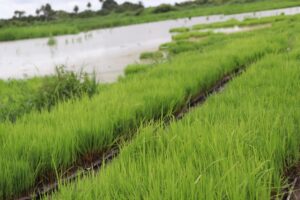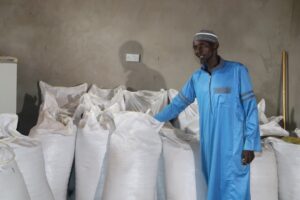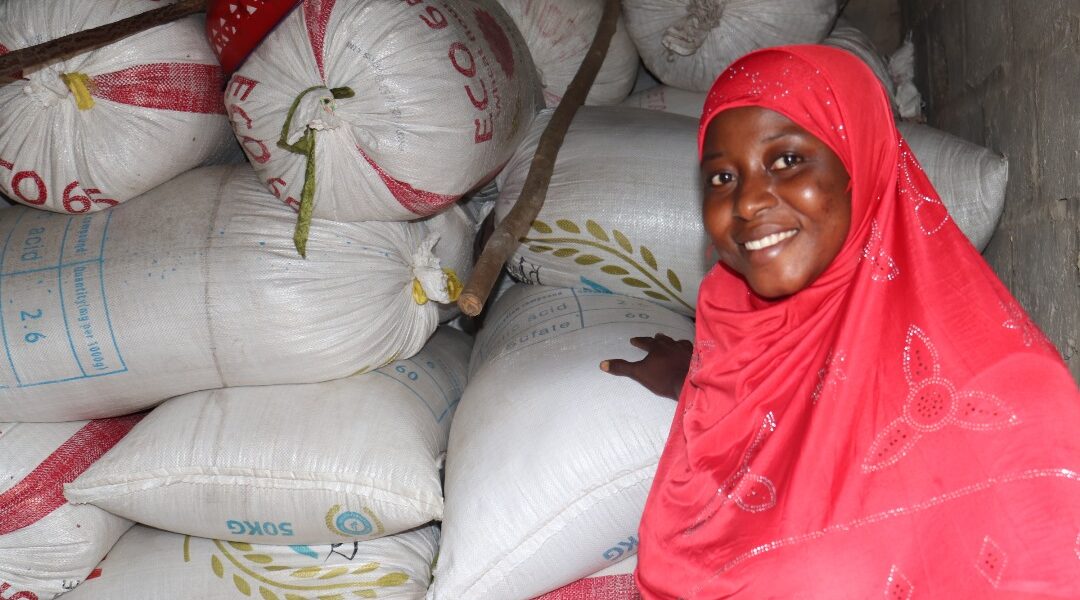The ROOTS Project continues to transform lives across rural Gambia, with its latest field mission to Jahally showcasing the significant impact of its agricultural interventions.
One standout success story is that of Saikou Kanteh, a rice farmer from Jahally, who harvested 60 bags of paddy rice from just 0.5 hectares of land and sold 35 bags and kept 25 for family consumption.
“ROOTS took me from grass to grace. I planted ISRIz7, a high-yielding variety. I used the proceeds to care for my family and fence my compound,” he said.
Another farmer, Musa Ceesay (48), recorded a remarkable yield of 450 bags from 3 hectares, planting a combination of Sahel 134, Farro 144, and ISRIz7 rice varieties.
“I use the proceeds to feed my family, pay school fees, and used as fish money,” he explained.
“They taught us best practices, from nursery beds to fertilizer application, crop monitoring, SRI, etc.”
Similarly, Kisima Gitteh harvested 120 bags from just one and a half plot.
A yield described as nothing short of remarkable.


In Madina Nfally, Chondi Sillah, a physically challenged farmer, reaped 55 bags of rice from his field.
“The ROOTS intervention has changed my life,” he said with gratitude.
Beyond individual farmer success, the ROOTS Project has also invested heavily in critical infrastructure improvements across the region. So far:
✅ 104 water gates have been replaced
✅ 11 culverts have been rehabilitated
These upgrades have significantly improved water control and enabled the cultivation of previously abandoned rice fields.
Targay Manneh, also from Madina Nfally, expressed appreciation for the support:
“ROOTS brought us back to our fields by providing seeds, ploughing, and herbicides.
We can now manage water in the fields. We are grateful,” he stated.
Through a combination of input support, technical guidance, and infrastructure development, the ROOTS Project is not only improving rice yields but also restoring dignity, boosting food security, and building resilience among rural farming communities in The Gambia.


